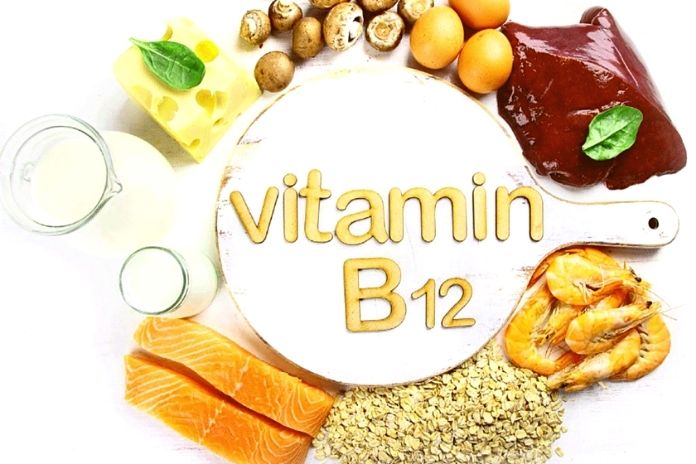The body needs vitamin B12 (cobalamin) for blood formation, cell division, and nerves’ functioning. Humans cannot produce cobalamin themselves.
In A Nutshell:
Vitamin B 12 (cobalamin) is crucial for the healthy growth of children. Malnutrition leads to development delays. Later in life, people with chronic gastrointestinal disorders are particularly affected by a vitamin B12 deficiency. In some cases, you have to inject the vitamin for life. Alcoholics, too, often take in too little cobalamin. The consequences usually only become apparent years after the onset of the deficiency, when the body’s stores are empty. The body needs cobalamin primarily for cell division, blood formation, and the nervous system. The first noticeable sign of vitamin B12 deficiency is often anemia.
What Is Vitamin B12?
The body needs vitamin B12 (cobalamin), among other things, to produce DNA, the human genome. Without sufficient DNA production, cells cannot divide. For example, blood cells cannot be formed. The nerve sheaths need cobalamin to ensure the transport of nerve signals in the body.
If there is a lack of vitamin B12, a particular form of anemia, known as megaloblastic anemia, occurs. In addition, neurological and psychiatric problems arise when the body is deficient in vitamin B12.
Animal foods are particularly rich in vitamin B12: liver, lean meat, fish, milk, cheese, and eggs. Vegetarians and vegans need to be careful that they eat enough foods that contain vitamin B12. Breastfeeding mothers who follow a vegetarian or vegan diet should ensure that their children also have an adequate supply of vitamin B12. Cobalamin deficiency can lead to developmental delays in children.
Patients with gastric or intestinal diseases can often no longer absorb sufficient vitamin B12 through the intestines. Some medications for heartburn or acid regurgitation (gastroesophageal reflux) can also make it harder for cobalamin to get into the organism from food. There are also other rare reasons for a vitamin B12 deficiency.
Because an adult’s body has large stores of vitamin B12, an insufficient intake of cobalamin is usually only noticeable after years. The first prominent sign is often anemia.
Which Vitamin B12 Value Is Average?
Depending on age and gender, different average values apply to vitamin B12 in the blood. The reference range for adults is 200 to 1000 ng / l blood serum.
When Is The Vitamin B12 Level Too Low?
The cobalamin value decreases when fewer vitamin B12 is absorbed from food than the body consumes. This can be because too little vitamin B12 reaches the intestines in the case of one-sided or malnutrition. Even with a balanced vegetarian diet, vitamin B12 intake is usually ensured, especially when dairy products or eggs are eaten.
The situation is different, especially in chronic stomach-intestinal diseases like chronic gastritis or Crohn’s disease(chronic inflammatory bowel disease). Patients who can no longer absorb vitamin B12 from their diet due to an autoimmune disease of the stomach or who have had part of their stomach removed because of a gastric disease often have to receive vitamin B12 by injection for the rest of their lives. Alcoholics are also particularly at risk of a vitamin B12 deficiency. Often they absorb the vitamin more poorly through the intestines. Patients with an underactive pancreas (exocrine pancreatic insufficiency) can also be affected. Tapeworm diseases are a rare cause of cobalamin deficiency.
Among the drugs, so-called proton pump inhibitors and H2 receptor antagonists, in particular, can hinder cobalamin uptake. The doctor recommends these active ingredients for heartburn and acid regurgitation, for example. Patients with kidney disease are at risk of using the vitamin B12 present in the body because of their kidney disease.
There are also sporadic hereditary defects in which too little vitamin B12 enters the body from food. Cobalamin deficiency is usually noticeable in childhood due to delayed development. Vitamin B12 can be injected into patients for these diseases.
When Is The Vitamin B12 Level Too High?
A vitamin level above normal can be caused, for example, by liver diseases or some blood diseases such as leukemia.
Also Read: AVOCADO, HONEY & CO.: THE BEST DO-IT-YOURSELF FACE MASKS FOR EVERY SKIN TYPE

